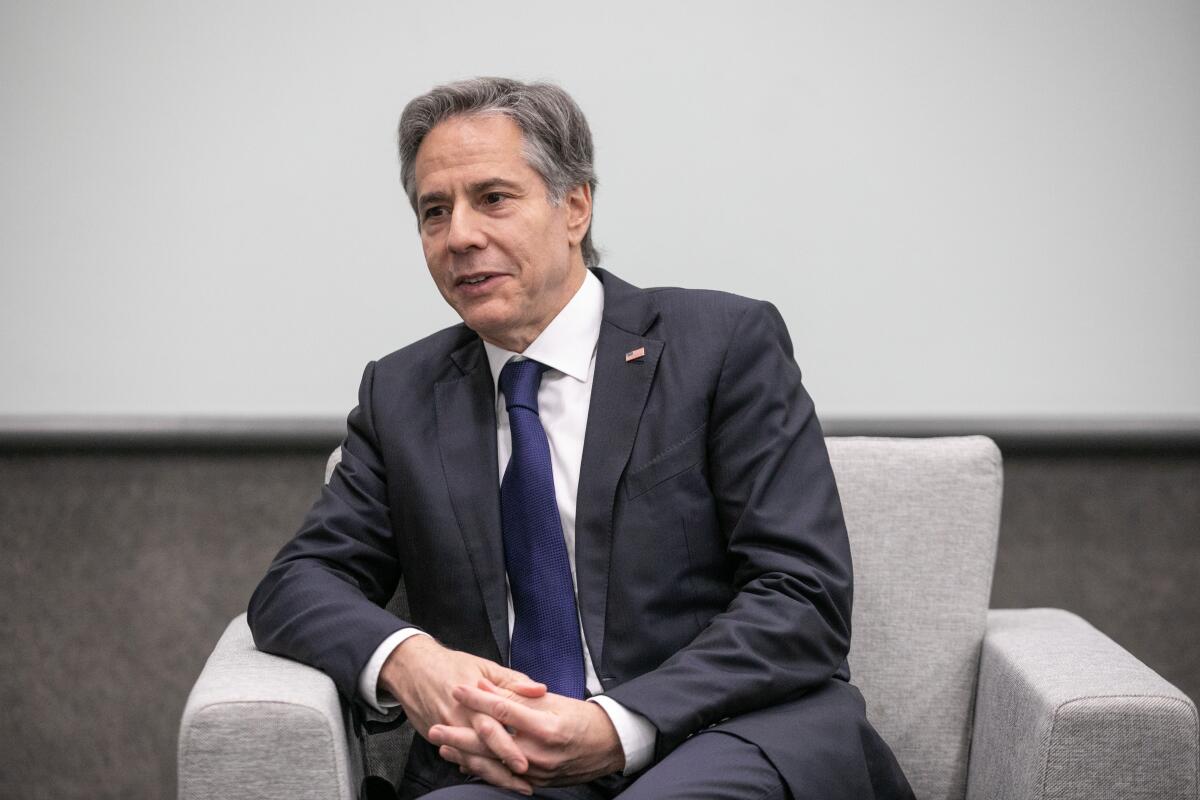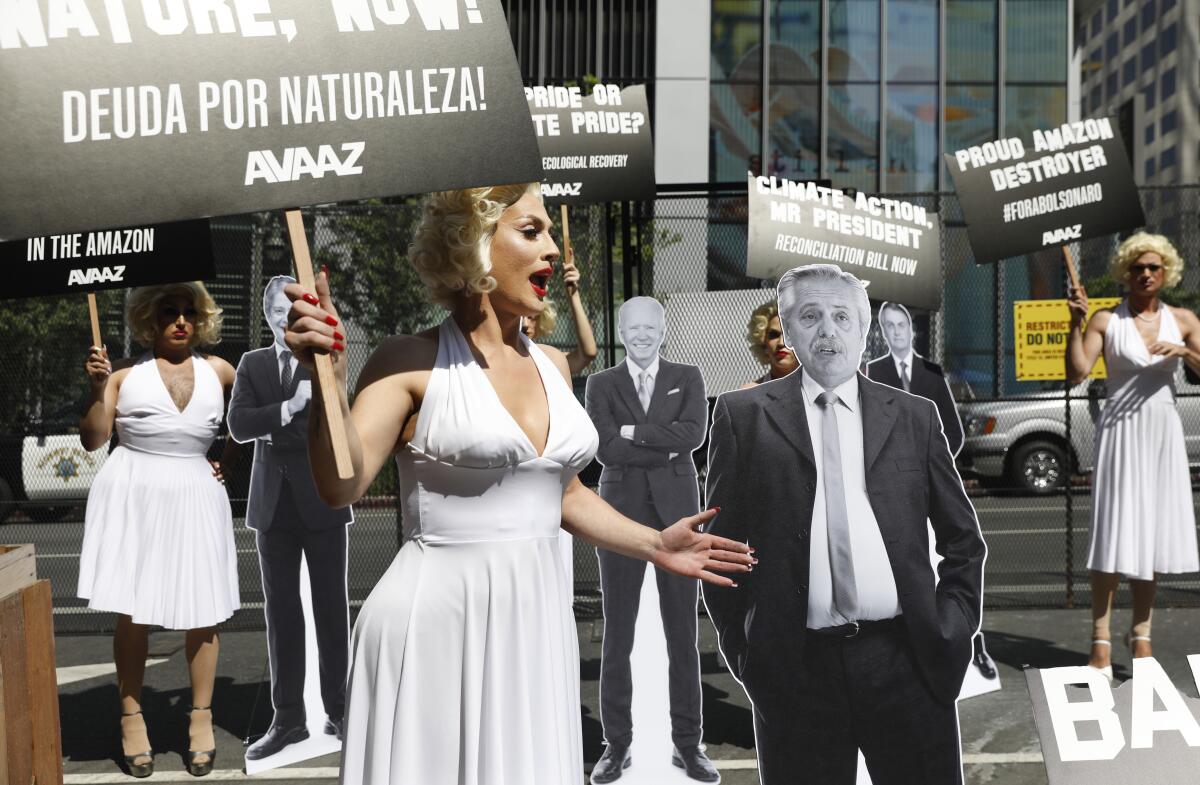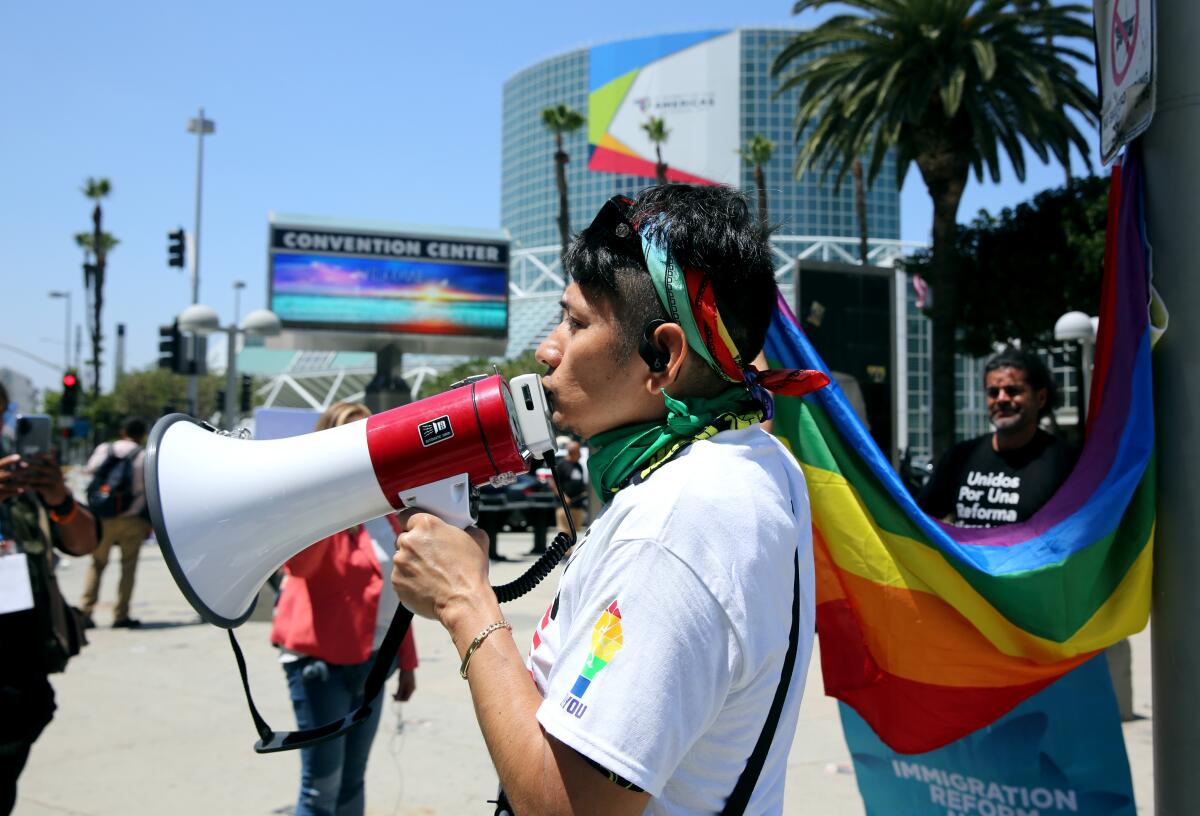Blinken defends exclusion of Cuba from Summit of the Americas, despite triggering boycotts

- Share via
Despite the absence of presidents from some of the region’s key countries, the U.S.-hosted Summit of the Americas, taking place in Los Angeles this week, can serve as a venue of delicate dialogue and incremental problem-solving, America’s top diplomat said Thursday.
In an interview with the Los Angeles Times, Secretary of State Antony J. Blinken defended the Biden administration’s decision to exclude Cuba, along with Nicaragua and Venezuela, while inviting other governments with similarly questionable democratic credentials such as Brazil.
The snub prompted Mexico and most of Central America to send lower-level delegations to a conference seen as a milestone for the region, a major embarrassment for a country hosting the event for the first time since its 1994 inaugural session in Miami.
“The notion that some countries are not here, I would dispute,” Blinken said, noting that dissidents, artists and members of civil society from Cuba, Nicaragua and Venezuela are attending — though they have next to no power in their countries. “I would argue they are more representative of their respective countries than the regimes that happen to be in place right now.”
Blinken noted that the U.S. had negotiations with Cuba earlier this year on immigration issues, and that the Biden administration had eased some of the restrictions imposed by former President Trump on travel, visas and remittances involving Cubans and U.S. citizens. But Cuban officials say most of those measures have been purely cosmetic, with little practical effect in relieving the suffering of that country’s citizens.

The slow pace at which the Biden administration has sought better relations with Cuba has surprised and disappointed many advocates for detente, a softening that started with then-President Obama when Biden was vice president and Washington finally attempted to put an end to half a century of Cold War hostilities.
Cuban Foreign Minister Bruno Rodríguez told The Times in a separate interview Thursday that the summit was a “disaster” because valuable information that countries like his could have supplied, particularly with regard to climate change and fighting COVID-19, was missing from the conversation.
Blinken also used the summit to stress concern about freedom of the press in a region where journalists are often killed, threatened or sued into silence, and acknowledged that it’s often the leaders of those countries who bear responsibility. Several presidents, prime ministers, governors and mayors allow a climate of impunity that gives rise to crimes against reporters. Seventeen journalists have been killed in the Americas just this year due to their work, according to Unesco.
The U.S. goal, Blinken said, is to boost watchdog organizations that advocate for journalist safety, and to pressure government leaders on the issue.
“We are first and foremost trying to put a spotlight on this, [and] second, engaging directly with governments about the need to take actions to protect journalists,” Blinken said.
He announced that at the summit’s conclusion, the U.S. will designate a new $75-million contribution to 300 civil society and human rights groups in Latin America, including some that work on journalist safety.
“We see governments around the world using so-called legal tools to actually put free press out of business, especially independent media, for example, with lawsuits designed to make them go bankrupt,” Blinken said. “We put in place funds that journalists can draw on and media enterprises can draw on in order to be able to defend themselves against these kinds of prosecutions.”

He cited Mexican President Andrés Manuel López Obrador, who regularly speaks out against journalists who criticize him, as someone who has promised to take “preventive actions” to stop the violence that dogs reporters in that country.
When asked whether the Biden administration‘s plans to meet with Saudi Crown Prince Mohammed bin Salman later this month would undermine rhetoric about press freedom, Blinken said there were overriding interests that took precedence.
The heir apparent has been implicated in the murder four years ago of Saudi journalist and U.S. resident Jamal Khashoggi in a Saudi consulate in Turkey. The Biden administration vowed to ostracize the crown prince, but now has found Saudi Arabia more important in efforts to address world energy supplies and challenge an increasingly belligerent Iran.
Amid the fractures in the Americas and assaults on democracy throughout the region — including in the United States — and worldwide, a summit that on the surface seems to accomplish little at least brings some people together to highlight pressing issues.
“The animating principle is that in order to answer these problems, virtually all of them require some level of cooperation across borders,” Blinken said. “None of our countries can do this alone. And we’re finding that with all of these — virtually all of these — governments, even when there are political differences between us, there’s a drive as well, to find ways to cooperate, because it’s in everyone’s interest to do so.”
More to Read
Get the L.A. Times Politics newsletter
Deeply reported insights into legislation, politics and policy from Sacramento, Washington and beyond. In your inbox three times per week.
You may occasionally receive promotional content from the Los Angeles Times.











